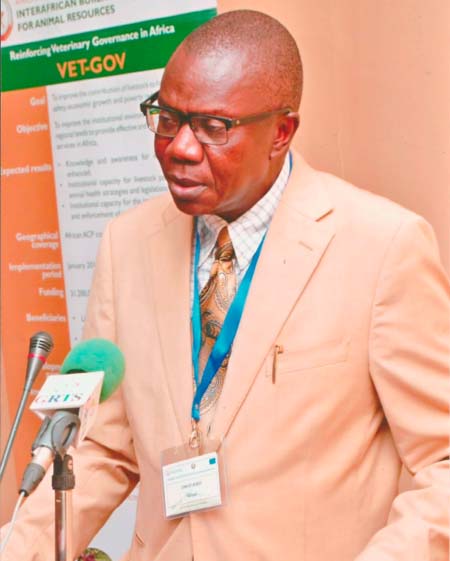
The
head of the Agriculture Division at the ECOWAS Commission, Ernest Aubee, has
underscored the importance of the livestock sector in the agricultural
transformation of West Africa.
The
ECOWAS Commission had recognized the important role of the livestock sector and
the benefits attached to the sector, Aube said.
Livestock
serve food security, livelihood, and trade as well as contribute to alleviating
poverty, he added.
The
ECOWAS official made these remarks while delivering a statement at the
inauguration of the regional livestock policy hub, organised by AU-IBAR, ECOWAS
Commission, FAO, in collaboration with the Gambia government through the
Ministry of Agriculture.
The
forum, hosted by the Department of Livestock Services, was held at the Ocean
Bay Hotel on Monday.
Aube
said the meeting was timely and relevant, as it was geared towards promoting
advocacy and knowledge creation, building institutional and individual capacity
in policy analysis, and encouraging change through supporting initiatives with
a high leverage effect.
According
to the ECOWAS Commission representative, the inauguration of the regional
livestock policy hub “will certainly contribute to the development of the
livestock as a source of food, income and employment for the growing population
of the ECOWAS region, which stands at 358 million.
He
also outlined that the ECOWAS region over the last five years has been active
in the development of the livestock sector.
“We
are indeed grateful to FAO, AU-IBAR and in particular the VET-GOT program,” he
said.
The
ECOWAS Commission in the past year has been in the forefront in addressing the
challenges of transhumance agriculture
in the region, as the 15 ECOWAS member states are presently developing their
NAIP and the ECOWAS region developing the RAIP, he continued.
“We
urge all member states that the issues of livestock are mainstreamed and
coasted in the National Agricultural Investment Plan (NAIP).
The
second generation of NAIP should include all the current and emerging livestock
policy issues, so the objective of agricultural diversification becomes a
reality, he said.
Behan
Became, animal production and health officer of West Africa Team, FAO Regional
Office for Africa, said available evidence indicates that the West African
population estimated at 358 million in 2016 is growing at one of the fastest
rates of 2.7 percent per year. It is projected to reach 455 million by 2025 and
almost double that figure by 2050, reaching 885 million.
Apart
from general population growth, there is also rapid urbanization in West
Africa. Currently, 45% of the population in West Africa is believed to live in
urban areas compared to 27% 30 years ago.
He
added that population growth, urbanization and the shifting preference of the
emerging middle class towards animal sourced food are factors which increase
the demand for nutrients dense animal products.
According
to him, the livestock sector in West Africa has huge potential for growth. This
potential can be harnessed through sustainable intensification of the livestock
sector, which in turn implies better use of inputs and services, policy and
institutional support and market access.


